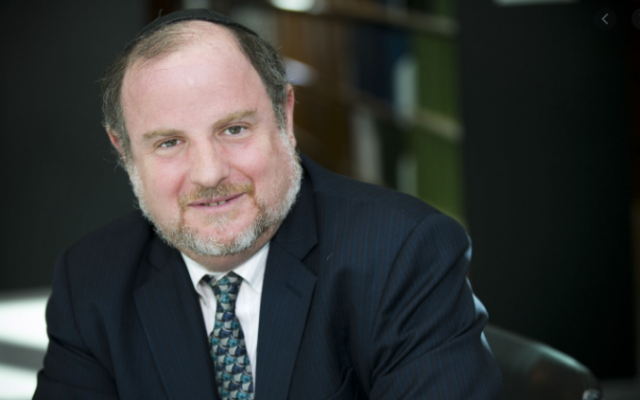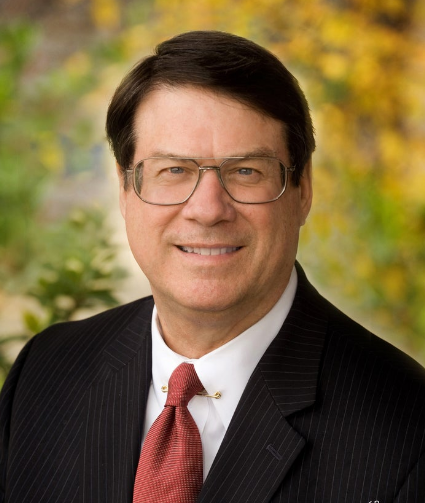Sandy Springs Synagogue Hosts Program on Ten Commandments
Congregation Beth Tefillah will Partially Reopen for Shavuot.

Congregation Beth Tefillah in Sandy Spring hosted a virtual “Ted” Commandments program May 25 and May 26 to explore the commandments from a variety of perspectives. The program, which included a different speaker commenting on what a particular commandment meant to them, was part of the synagogue’s program leading up to the holiday of Shavuot. It commemorates, in part, G-d giving the Ten Commandments to the Jewish people on Mount Sinai.
The synagogue will partially reopen to celebrate the holiday. Congregants were required to fill out an admission form for one of three outdoor services on Friday, May 29 and Saturday May 30 so that overcrowding did not occur. The holiday observance is believed to be the synagogue’s first major event since it was closed in March because of the coronavirus pandemic.
Among those speaking in the Ten Commandments program was Rabbi Michael Broyde, a nationally known authority on Jewish law and a faculty member at the Emory University School of Law. He spoke about the third commandment that forbids taking G-d’s name in vain.
“It’s important to understand that when you talk about taking G-d’s name in vain, the technical sense is in a courtroom setting or when you curse somebody in the name of G-d. But the deep moral sense is relevant to us all the time and in every situation; we’re called upon to be G-d’s emissaries in this world.
“We are not G-d’s children in the biological sense, but b’nai Yisroel in the sense of G-d’s agents in this world. And we’re called upon to continuously represent what G-d really wants perfection to look like. Thus, were called upon to never engage in activity that desecrates G-d’s name.
“We’re called upon to perpetually engage in activity that elevates everybody’s sense of what G-d is. And when we’re called upon to be in a situation where our conduct is imperfect, meaning sometimes each and every one of us, all of us sometimes succumb to temptation, we’re called upon to honestly recognize that our conduct is sinful and wrong.”
Also speaking was the mayor of Sandy Springs Rusty Paul, who is not Jewish. He spoke about what the fifth commandment of honoring your father and mother meant to him.
“Honoring your parents is something that sometimes is easy to do. Sometimes it’s difficult to do. But it’s something that connects us to our past. And that’s something that is very important, obviously, to the Almighty. That’s why we honor our parents. We honor that connection to the humans who’ve come before us, to the people who’ve raised us, to the people who’ve given us everything and made it possible for us to be all that we can be.
“And that’s why honoring your parents, not just because you can live long on the land, but because it’s recognition of the great things that our parents have done for us in a way to pay back and again, another quid pro quo by showing your children the example of honoring your parents, then you could teach them the importance of honoring you.”
Beth Tefillah’s program on the Ten Commandments concluded with Jody Fleisig, a communications consultant who reflected on the final commandment, not to covet. She felt it was particularly applicable to our experience today.
“I think the coronavirus has changed us. I know it’s changed me, and I hope it’s changed us all for the better. So the question is, how can we teach ourselves not to covet? And how can we teach our kids not to covet? I think we teach them Jewish values. I think we teach them to look inside themselves rather than to look inside other people’s homes, which is, instead of being insanely jealous or coveting what other people have, go 180 degrees in the other direction, give of yourself, donate, volunteer, do something that you wouldn’t do. And then slowly you’ll end up somewhere in the middle.
I’m throwing you a challenge. Think about what you covet. Think about what’s important to you, what’s important to your kids. Sit around the kitchen table and talk about it and see if you can kind of realign yourself and change, and discuss it, and then look outside your kitchen window again and say, you know what? I’m not going to covet my neighbor. I’m going to take all my positive energy. And I’m going to pay it forward. I’m going to help my neighbor and I’m going to think, you know what? I don’t want that perfect life. I don’t want that perfect person. I don’t want that perfect party.”





comments